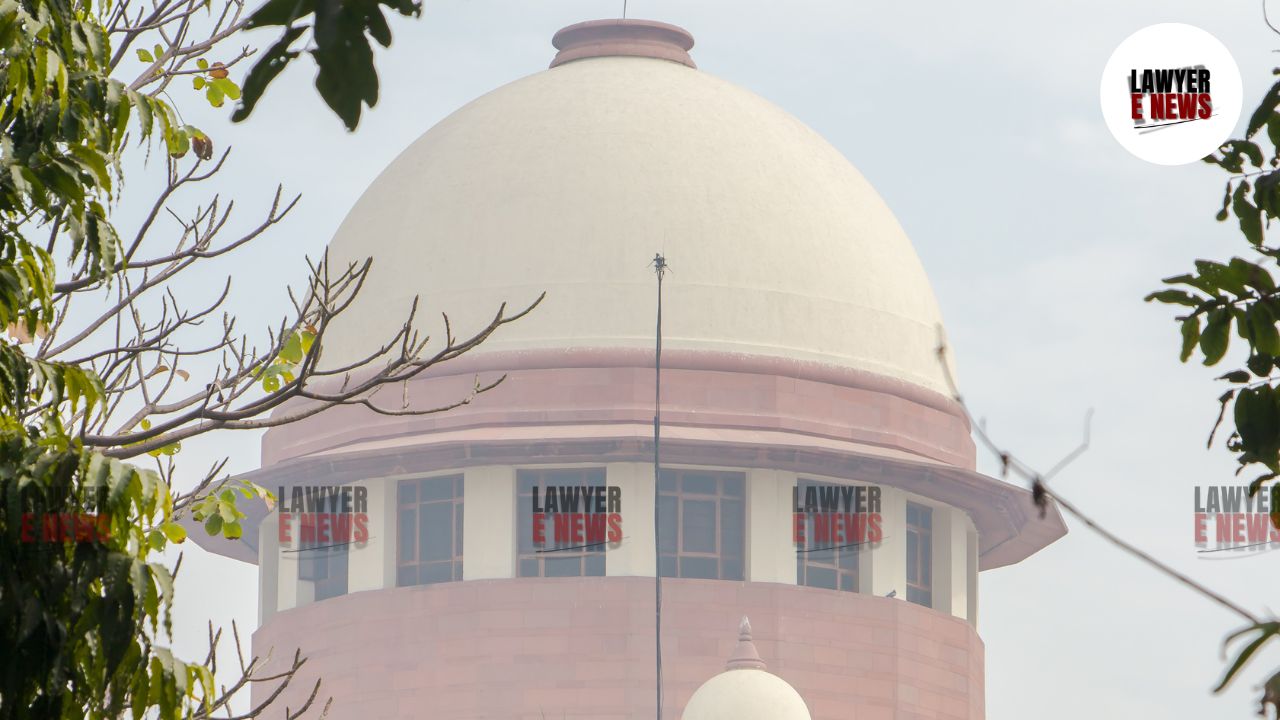-
by Admin
15 February 2026 2:16 AM



Supreme Court Restores Conviction in 1998 Murder of MLA Brij Bihari Prasad: Life Imprisonment for Accused. The court finds the prosecution's case established beyond reasonable doubt, restoring the trial court's judgment convicting the accused under Sections 302 and 307 of the IPC.
Yesterday, Supreme Court of India reinstated the conviction of two accused in the high-profile murder of MLA Brij Bihari Prasad and his bodyguard Lakshmeshwar Sahu, in the case of Rama Devi vs. The State of Bihar and related criminal appeals. The court's ruling overturned the Patna High Court's 2014 acquittal of the accused, thereby restoring the life sentence awarded by the trial court. This decision marks a significant closure in a politically charged case from 1998, with the Supreme Court holding that the accused, Mantu Tiwari and Vijay Kumar Shukla alias Munna Shukla, were guilty of murder and attempted murder.
The case stems from the gruesome assassination of Brij Bihari Prasad, a sitting MLA and political heavyweight in Bihar, on June 13, 1998, while he was in judicial custody at Indira Gandhi Institute of Medical Sciences (IGIMS), Patna. Prasad was recuperating in the hospital when armed assailants fired at him and his bodyguard. The attack was allegedly the result of a long-standing political rivalry involving gang-related violence. The trial court initially convicted nine accused persons, including Tiwari and Shukla, in a decision based on witness testimonies and forensic evidence.
However, in 2014, the Patna High Court acquitted all the accused, citing discrepancies in eyewitness accounts, procedural lapses, and concerns over the timing of the FIR. The acquittal was appealed by the Central Bureau of Investigation (CBI) and Rama Devi, wife of the deceased, leading to the Supreme Court's intervention.
A key issue in the appeal revolved around the timing of the First Information Report (FIR). The High Court had raised concerns that the FIR was ante-timed and that the investigation showed signs of manipulation. The Supreme Court, however, found this argument insufficient, stating that while there were some procedural delays, they did not materially affect the core of the prosecution’s case.
The court further scrutinized the testimonies of the key eyewitnesses, Paras Nath Chaudhury (PW-1) and Mahanth Ashwani Das (PW-25). These witnesses had directly implicated the accused but faced credibility challenges due to contradictions and their personal relationships with the deceased. The Supreme Court rejected the High Court’s dismissal of their testimonies, finding their accounts reliable enough to support the conviction.
The court restored the trial court's convictions under Sections 302 (murder) and 307 (attempt to murder) of the Indian Penal Code (IPC). The decision stated:
"The charge under Section 302 read with Section 34 of the IPC against Mantu Tiwari (A-4) and Vijay Kumar Shukla alias Munna Shukla (A-8) for the murders of Brij Bihari Prasad and Lakshmeshwar Sahu is proven and established beyond reasonable doubt."
The court reinstated the life sentences for both accused and imposed additional penalties for attempted murder. The sentences will run concurrently, with both being subjected to life imprisonment.
“Discrepancies in testimony cannot undermine the core facts of the case.”- Supreme Court
The Supreme Court paid special attention to the inconsistencies highlighted by the High Court in the eyewitness testimonies but concluded that these were minor discrepancies. The court emphasized that Indian law does not follow the doctrine of falsus in uno, falsus in omnibus (false in one thing, false in everything), meaning that even if some parts of a witness's testimony are untrue, other credible parts can still be relied upon. It noted:
“The doctrine of falsus in uno, falsus in omnibus is not a sound rule in India. Minor discrepancies do not vitiate the entirety of credible testimony when the substratum of the prosecution's case remains intact.”
The Supreme Court upheld the High Court's acquittal of four other accused, including Suraj Bhan Singh and Ram Niranjan Chaudhary, on charges of conspiracy. The court found insufficient direct evidence to link these individuals to the conspiracy, stating:
“There is no direct ocular evidence implicating Suraj Bhan Singh, Mukesh Singh, Lallan Singh, and Ram Niranjan Chaudhary. The charge of conspiracy is not substantiated.”
The prosecution's reliance on telephone records and an alleged post-incident celebration to prove a conspiracy was deemed insufficient to convict these accused.
The restoration of the convictions brings a long-awaited closure to the victims’ families and highlights the judiciary’s role in rectifying errors in high-profile criminal cases. With the acquittal of the other accused, the court balanced the need for justice with the principles of reasonable doubt.
The case remains a significant chapter in Bihar's political and criminal history, with the Supreme Court’s judgment setting a precedent on the admissibility of witness testimonies and the treatment of procedural lapses in murder trials.
Date of Decision: October 3, 2024
Rama Devi vs. The State of Bihar & Ors.
